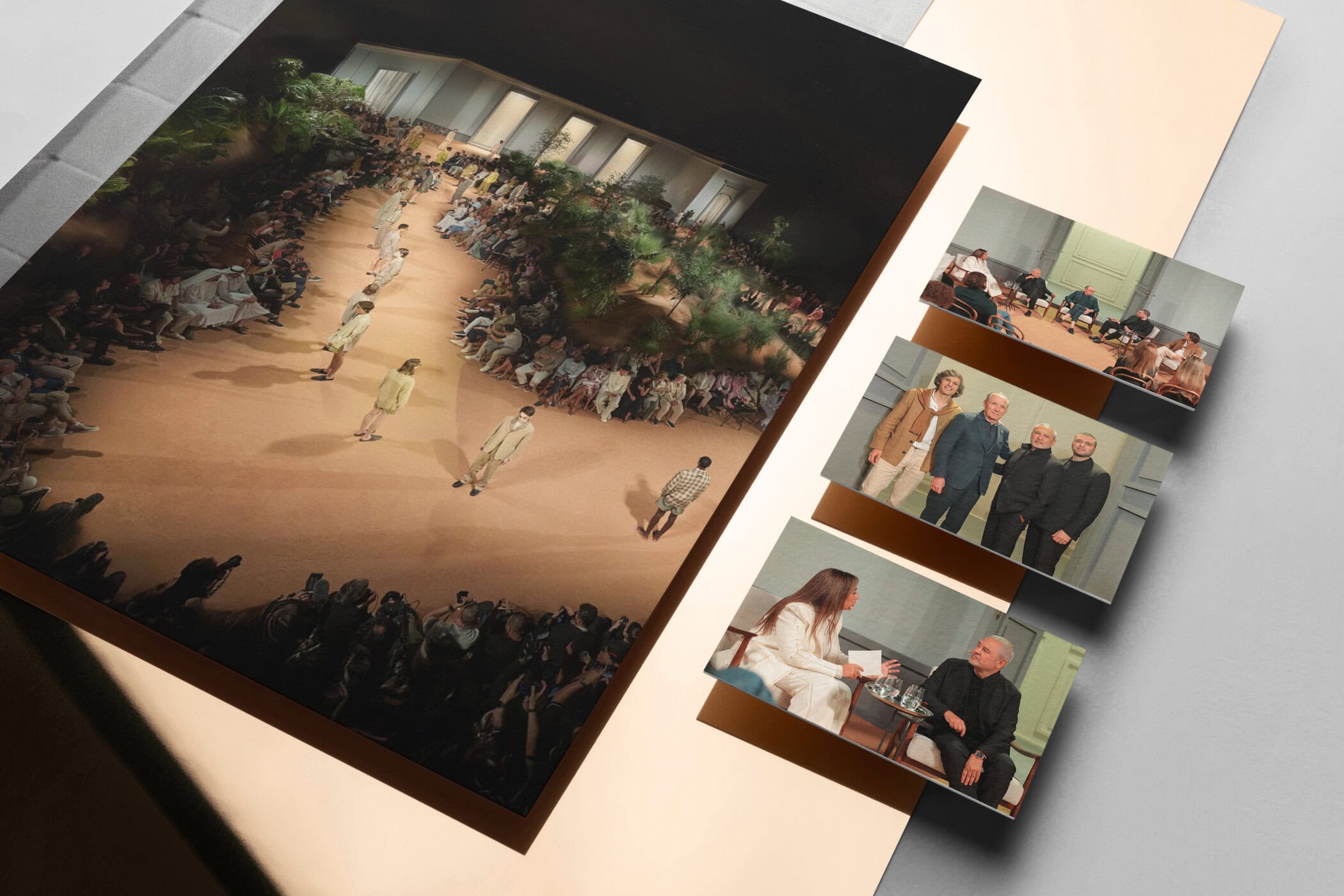At Dubai Opera, the Leaders Behind Zegna and Elie Saab Came Together for a Rare Public Conversation on Legacy, Leadership, and the Future of Family-Run Fashion
By Kenneth Richard
Beneath the ornate arches of the Dubai Opera—still echoing from the previous evening’s Zegna Spring 2026 show—a different kind of fashion event unfolded. Less about spectacle, more about substance. On the same stage where the house presented a new vision of quiet luxury, Gildo Zegna, Angelo Zegna, Elie Saab, and Elie Saab Jr. sat down for an intergenerational conversation that revealed the pressures, values, and responsibilities behind fashion’s most enduring family dynasties.
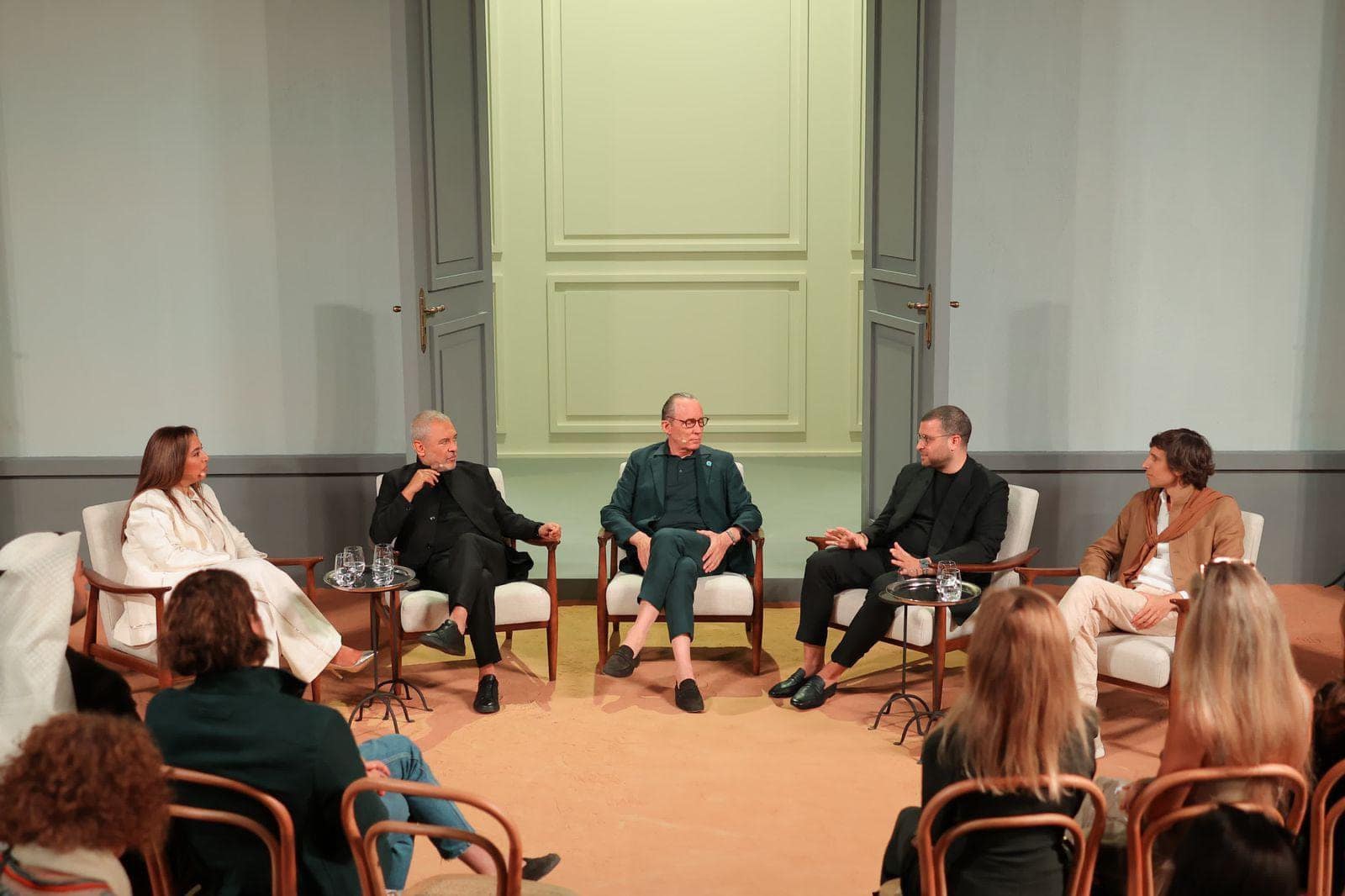
Moderated with a balance of reverence and candor, the discussion offered rare insight into how two global fashion families—Zegna from Trivero and Saab from Beirut—navigate legacy, adapt to change, and prepare the next generation to lead. It wasn’t a product pitch. It was a family gathering in the public eye, woven together by a shared belief in craftsmanship, vision, and the long game.
For Gildo Zegna, Chairman and CEO of Zegna Group, the moment held particular weight.
This is the center of the world, this is where it happens.
– Gildo Zegna
He likened the experience to Zegna’s historic moments of opening in China, New York, and their resilience through COVID. For him, the firm’s Dubai runway show, and first show done outside of Italy, now joins that list—a symbol of luxury’s future as much as its present.
Angelo Zegna, Consumer & Retail Excellence Director, brought a younger—but no less grounded—perspective.
We think of our clients as guests… that started long before I joined.
– Angelo Zegna
He recalled how his father hired from hotel lobbies and airlines long before hospitality became fashion’s new frontier. “Often these were waiters, hotel concierges—he understood before many the importance of service and giving people a chance.”
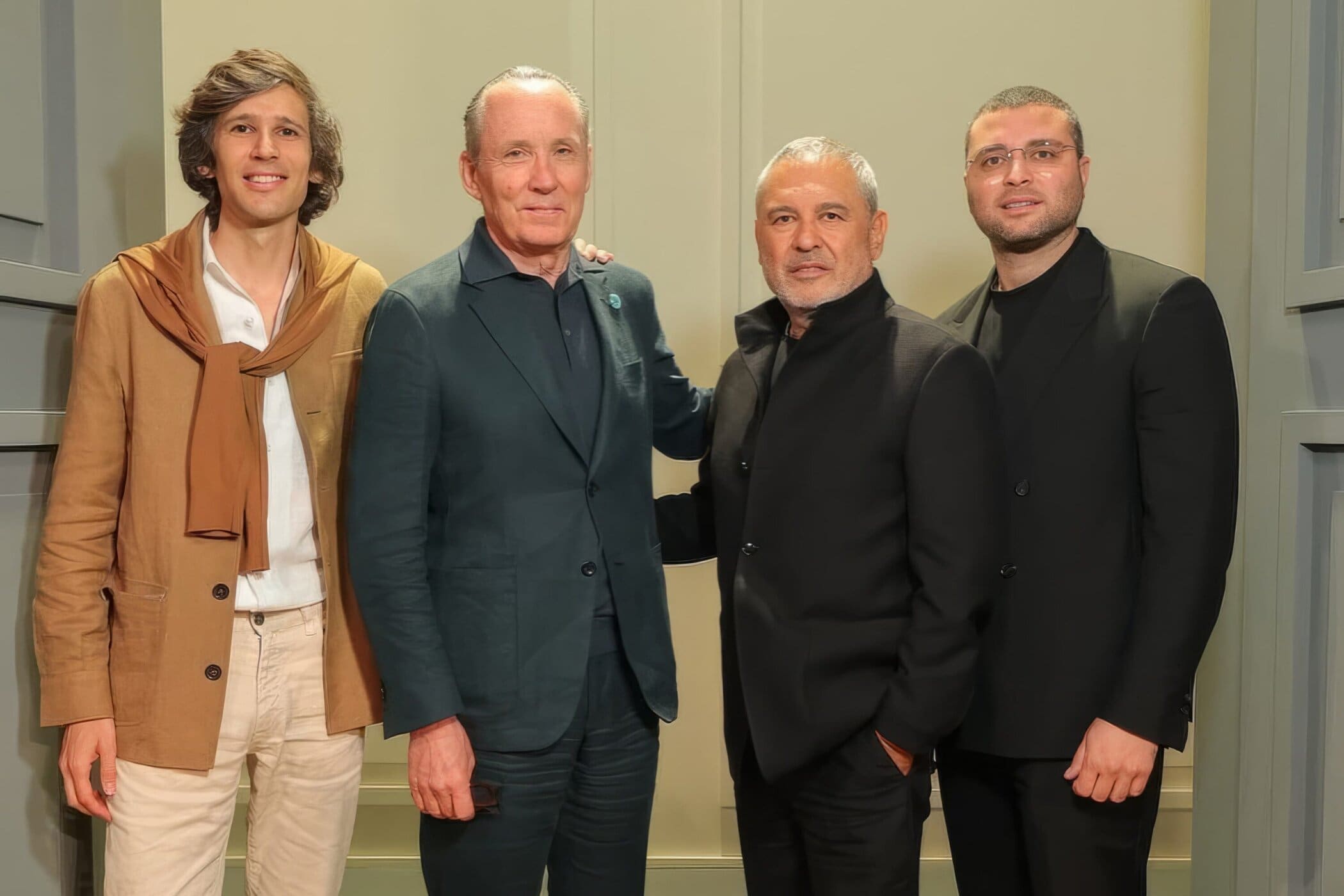
He also spoke candidly about what it means to be part of a family business: “You wear three hats—family member, shareholder, and operator—and you need to know when to switch between them.” The clarity and discipline that come with those roles, he explained, are what allow family houses to evolve without fracturing.
There are moments where the family must step back and let the operator lead. There are others when the shareholder must have a voice. It’s about self-awareness and mutual trust.
– Angelo Zegna
But at the heart of that balance lies an evolving philosophy of succession and stewardship:
We think of the family business as a house—each generation builds a new floor, always respectful of what came before, but restructuring it for the future.
– Angelo Zegna
On the other side of the stage sat Elie Saab, the Lebanese couturier whose gowns have graced red carpets and royal halls alike and who celebrated his 45th anniversary in business with a dramatic outing in Dubai this past year. While Zegna’s legacy began in Italy’s Piedmont hills, Saab’s was born in Beirut—through war, displacement, and vision.
It’s more than responsibility—it’s identity.
– Elie Saab
Saab reflected. “To build success 40 years ago was not the same as today. But when you have a good product and a vision, success will follow.”
His son, Elie Saab Jr., now CEO and Vice Chairman of the brand, recalled the journey in vivid detail. “My father built this from modest beginnings in a country torn by war,” he said. “He took his luggage, a boat to Cyprus, and a plane to deliver collections to clients around the world. That was the dream—and I chose to live it.”
You cannot sleep on legacy… If you don’t nurture it, it disappears.
– Elie Saab Jr.
Gildo Zegna echoed this sense of long-termism. “Running a family business is not about short-term profits,” he said. “It’s about stewardship. About building something for the next generation.” He referenced Zegna’s recent moves—its New York listing, its retail transformation—not as vanity milestones, but as strategic maneuvers that ensure the house’s relevance decades from now.
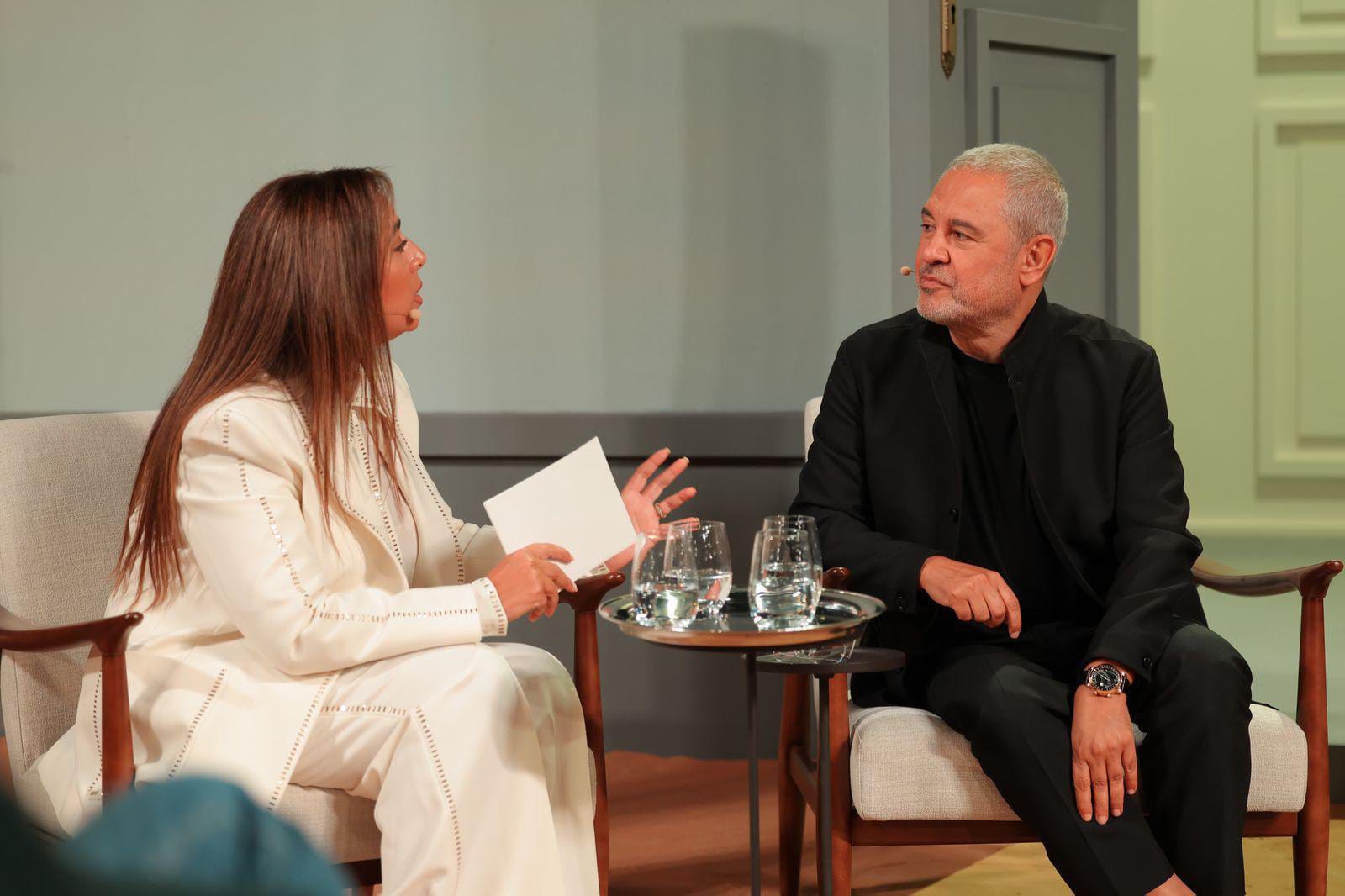
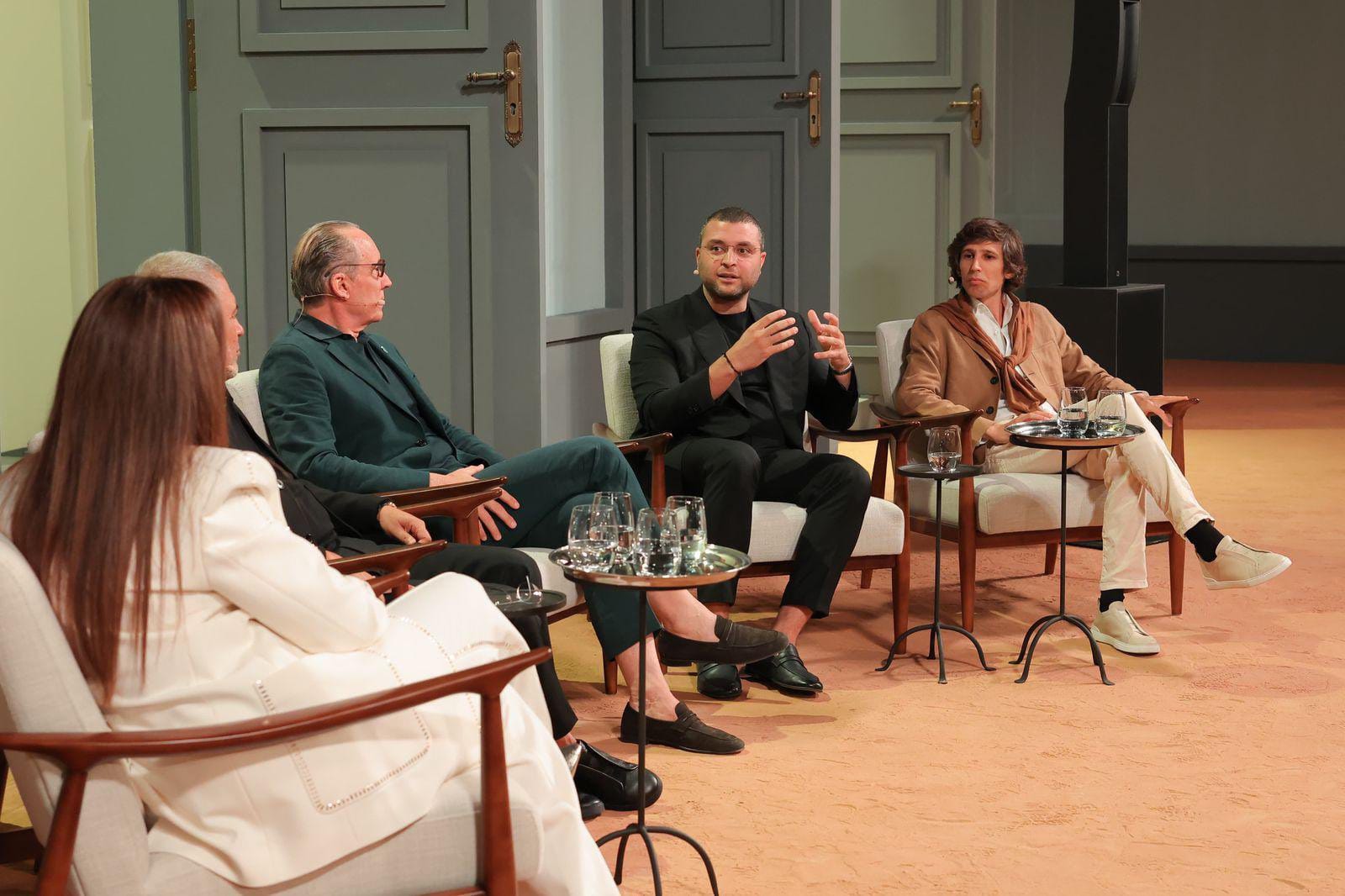
What emerged wasn’t nostalgia—it was a live case study in how family businesses, if handled with vision and discipline, can still thrive. Angelo Zegna recalled a lesson learned at age 13 from his grandfather: out of one million companies, only 44 make it to 100 years. Out of a billion, one makes it 200 years. “We’re one of the few,” he said, “and that only happens with rules, structure, and mutual respect.”
Dubai, both families agreed, is now a vital player in this evolving story. “This is the land of opportunity today,” said Saab Jr. “You can build a business here with a kind of ease and support that doesn’t exist anywhere else.”
From factory floors in Biella to couture salons in Beirut to a gleaming opera house in the UAE, the conversation traced fashion’s changing geography—and the emotional weight of leading a house that carries not just a brand name, but a family’s name.
As the talk concluded, the message was unmistakable: the future of fashion isn’t just about product drops and quarterly earnings. It’s about values, structure, and vision passed down like heirlooms.
We are here to provide our best customer an experience. This is the dream of Zegna. This is the future.
– Gildo Zegna
